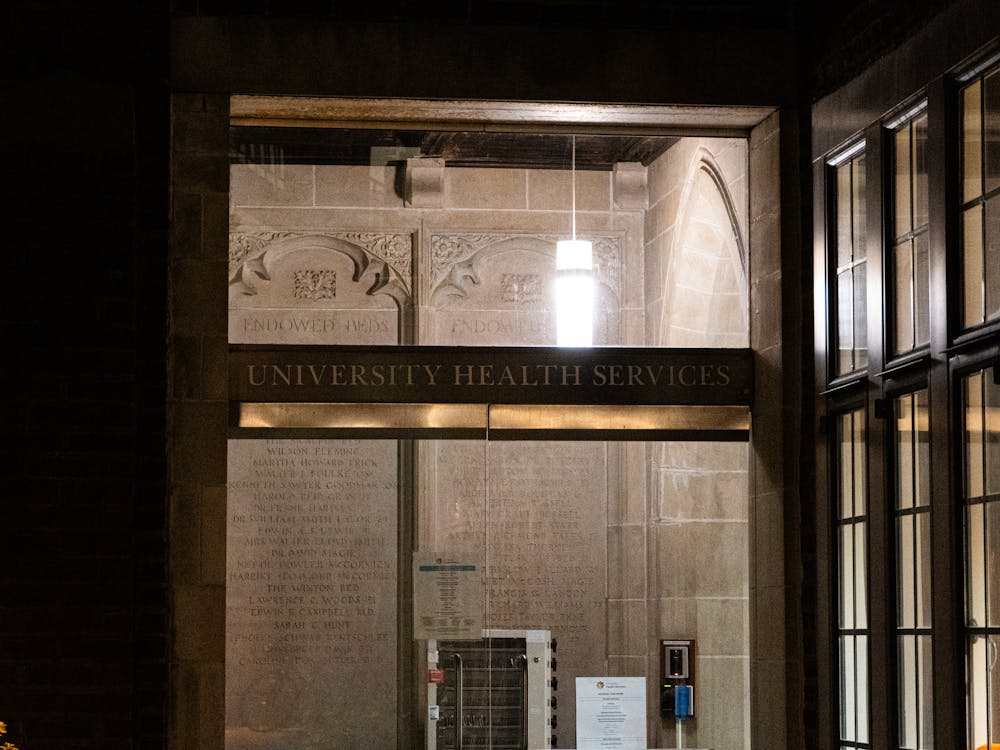The Winter Olympics, hosted in Pyeongchang, South Korea, officially closed on Saturday night. The United States finished fourth in the medal count, with 23 medals, well behind Norway’s first place at 39. But for many Olympians such as Caroline Park ’11, the journey is about much more than winning a medal.
Park competed on the women’s ice hockey team during her four years at Princeton, helping the squad reach the ECAC quarterfinals each season. Having grown up in Canada, ice hockey was a natural choice for Park, whose parents emigrated from South Korea prior to her birth. Park is one of five North Americans on the Korean roster this Olympics, having become a naturalized citizen.
Park was first invited to try out for the South Korean national team in 2013, while she was working as a clinical research assistant at the Hospital for Special Surgery in New York City. She has been quoted as saying she thought the initial email from the Korean Ice Hockey Association was spam. By 2014, she was told that she had potential to be on the Olympic team if she obtained citizenship. A year prior to the Olympics, Park opted to take a leave from classes and her clinical residency at Columbia University, where she has studied since 2015. She committed to training full time for the Olympics and made plans to return to medical school to continue pursuing her goal of becoming an orthopedic surgeon after the Games.
Park’s time as a student-athlete at Princeton undoubtedly prepared her to maintain an Olympic-caliber training program while attending medical school. Speaking to Emily Kaplan of ESPNW, Park elaborated on the challenges of balancing the two. Park stated, "You're trying to focus 100 percent on doing well in med school and taking care of patients, then in the back of my head I'm thinking, 'OK, I get out of the hospital at 8 o'clock, I need to eat dinner then go to the gym and train for an hour or two, then go back and study for my exam and prepare for the next day of hospital duties. Or sometimes it's, 'OK, I do this then I have to go to Korea for the weekend.'"
Park also discussed the initial cultural challenges she faced. On her first trip to South Korea in 2013, which was her first time leaving the United States, she overheard others talking about her in the locker room and noticed cultural tensions. Assimilating into the team was a challenge, but Park said that her relationships with her teammates strengthened over time, and “... since then, everything has been great. In terms of adjusting to the team, the girls are so nice and welcoming. Even though we're not with each other all year, all the time, we're a team now. Every time I go back, it's like I never left.”
Park’s Olympic journey took on a whole new level of international significance after the International Olympic Committee (IOC) announced that 12 North Korean athletes would join the South Korean women’s ice hockey team to form the first ever unified squad.
At first, Park explained, the arrival of the North Koreans was met with some frustration. She spoke of the difficulties of managing a different team dynamic so close to the Games. "Logistically, when you bring over 12 players, you have to figure some things out," Park said. "Locker room space, ice time. And it's hard to skate with 35 players on the ice.” She continued, "They've… been really thrown into it, and the girls have been super friendly and really eager to learn. They're trying to learn the systems we've been practicing for the last four years in a matter of weeks. The international spotlight is on them. It can't be easy for them."
Prior to the games, Park spoke with GoPrincetonTigers.com. "This has been an incredible experience and I'm extremely proud to represent Princeton women’s ice hockey as we grow the sport in South Korea,“ she said. “This is the first time South Korea has ever had an ice hockey team compete in the Olympics, so there is still a lot of room for development, but this will be an incredible opportunity for the sport to gain exposure in a country dominated by speed skating and figure skating. I'm fortunate to be able to share my experiences of playing hockey growing up in Canada and at Princeton, and it's been truly rewarding to see young girls in Korea learn about the sport and get excited about lacing up some hockey skates.”
Korea finished in eighth place out of the eight nations in the Olympic women’s tournament, having earned an automatic bid as the host country. Far more significant, however, was this union of North and South Korean athletes competing together at the Olympic Games. Athletes across all disciplines wore uniforms simply marked “Korea.” Kim Yo-jong, Kim Jong-un’s sister, was present to cheer on the athletes.
The 2018 Olympic Games may prove to be a breakthrough moment in history. At a meeting with South Korean President Moon Jae-in shortly before the closing ceremony, Kim Yong-chol, a senior North Korean official, expressed that North Korea would be willing to open dialogue with the United States.








